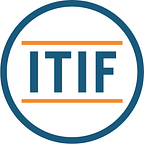Itolizumab Provides Relief from Psoriasis, Covid-19, and More
This post is one of a series in the #Innovate4Health policy research initiative. #Innovate4Health is a joint research project by the University of Akron IP Center (UAIP), the Information Technology & Innovation Foundation (ITIF), and the Geneva Network. This project highlights how intellectual-property-driven innovation can address global health challenges. If you have questions, comments, or a suggestion for a story we should highlight, we’d love to hear from you. Please contact UAIP Research Fellow Douglas Park at dpark@uakron.edu for more information.
Joshua Villers
Every day people live with an unrelenting distress etched into their skin by severe plaque psoriasis, a chronic autoimmune condition characterized by red, raised, scaly patches on the skin, often accompanied by intense itching and pain. For some, however, this condition transcends mere inconvenience and becomes a relentless force that dictates daily life and affects self-esteem, social interactions, and more.
Fortunately, India has produced numerous therapeutic breakthroughs in the treatment of chronic plaque psoriasis. One drug in particular, itolizumab, has shown promise in providing relief to patients affected with not only psoriasis but asthma, COVID-19, and more.
Psoriasis reduces the quality of life and inflicts many psychosocial problems on the affected individual. In addition to persistent itchiness, discomfort, and pain, psoriasis can also cause social friction and even discrimination based on the patient’s visible disfigurations. In fact, one study discovered that psoriasis leads to a decrease in quality of life comparable to the experiences of people suffering from cancer, depression, diabetes, and other major conditions.
A study from 2019 indicates that over 4.6 million people suffer from psoriasis worldwide, and plaque psoriasis accounts for roughly 90% of all cases. Approximately 20% of patients suffer from psoriasis so severe that they need whole-body treatment, and the chronic inflammatory nature of psoriasis means that patients suffer cycles of relapse and remission that require “on-and-off” treatment schedules.
Individuals with severe plaque psoriasis often must navigate a minefield of treatment options, from topical creams to systemic medications, each with its own set of limitations and potential side effects. Despite the array of therapies available, many patients still struggle to find relief, caught in a constant battle against their own skin.
To combat plaque psoriasis, Indian biopharmaceutical company Biocon launched itolizumab under the brand name ALZUMAb as an innovative biologic treatment for acute psoriasis. The drug combats psoriasis by inhibiting the improper immune response that causes psoriatic blemishes. According to Biocon, itolizumab also offers a gentler treatment process with relaxed dosing schedules and longer breaks between treatments.
Biocon’s innovation — and, just as importantly, its patents on that innovation — has attracted foreign investment in research not only the use of itolizumab for psoriasis but also for other conditions and diseases. In 2022, United States biotechnology firm Equillium licensed rights from Biocon. With partners like Equillium, Biocon has been able to conduct research into secondary indications for itolizumab. Though the drug was originally tested in India for efficacy against plaque psoriasis as early as 2013, the continued research and development — possible only with the protections that patents provide for such extensive investments — created a family of patent applications, pending in the United States, Australia, Canada, and New Zealand, covering methods of using itolizumab to treat severe asthma.
Biocon and Equillium’s investments in itolizumab also proved valuable during the COVID-19 pandemic, as itolizumab shows promise in treating COVID-19. Cuba first tested this possibility in July 2020 and later that same month granted the drug limited approval for use to treat COVID-related acute respiratory distress syndrome. Building on Cuba’s research, an Indian study showed that itolizumab significantly reduced mortality in patients hospitalized with similar COVID-related conditions.
With patent protections, Biocon has established a solid foundation for domestic manufacture to provide itolizumab as an affordable alternative for COVID treatment in India. The drug averages just over $106 per vial, making the full course of four vials cost around $425, making itolizumab substantially more affordable than comparable treatments with tocilizumab at up to $670 per vial.
These medical advancements do not come without substantial investment, however. Biocon holds 299 patents for small molecules, 982 patents for biologics, and an exclusive licensing deal with Equillium for methods of use of itolizumab. Because of their robust patent portfolio, Biocon has been able to secure the funding necessary to conduct research and development on itolizumab resulting in treatments for psoriasis, asthma, and COVID-19.
Investors are crucial to the development of new drugs, but they are even more important to research into additional uses for drugs. Safe and effective drugs are impossible without extensive research and clinical trials, which themselves are incredibly expensive. Though sources of funding vary for different stages of drug development, the crucial final stages receive funding primarily from venture capitalists and pharmaceutical firms themselves.
It suffices to say that investors favor opportunities with high chances of return, and the market exclusivities that come from patents are the most secure way to ensure that drug development provides a return. This is especially true for development of drugs that have been on the market for some time, as expiration of exclusivity or the availability of generic alternatives means that further research into additional uses for the original drug is unlikely to be profitable.
This poses a problem for research into drugs that might be useful to treat other diseases, because these secondary indications rarely arise except from regular, widespread use. As a result, strong patent protections are even more important to drug development for secondary indications than for initial research and development.
Intellectual property has therefore been instrumental in Biocon’s ability to safeguard its pioneering drug, itolizumab, enabling the company to expand into international markets. Furthermore, it has facilitated a positive feedback loop of innovation, allowing Biocon to channel profits from one generation of drugs back into research and development, thus propelling the creation of subsequent generations of therapies.
